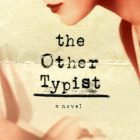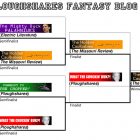Four New Messages
Four New Messages
Joshua Cohen
Graywolf Press, August 2012
208 Pages
$14.00
One may as well begin, before getting to the ignoble task of judgment, with the facts: Four New Messages is a collection of stories by Joshua Cohen, who, according to his biography near the book’s back cover, was born in New Jersey in 1980. It consists of four stories narrated by narrators aware that they’re narrating (“I described things, I made things up and described them” is a typical line); at least one of these narrators calls himself ‘J,’ is from NJ, and was born in ‘annus Reaganis.’ Mostly the stories occur in the era when “climate change was being called a sort of temperature socialism…redistribut[ing] warmth to colder months”—that is, now. They’re set in, or stem from, a nation filled with McDonald’s, Ford Escorts, banks unwilling to loan, university campuses with trees blooming security cameras—that is, a recognizable America.
From these facts one might now venture more comfortably into murkier, subjective terrain.
Four New Messages is the best rendering to-date of Life With The Internet. Cohen has coded a program that both simulates and analyzes our wired world, investigating the gap between people and our Facebook profiles, where “virtual presence [is]…presence nonetheless.” One story, “Sent,” is a contemporary folktale about a girl who participates in an online sex video. “Emission”—the collection’s strongest piece—focuses on Mono, a hapless cocaine dealer trying to remove from the internet circumstantial but ubiquitous evidence that he once masturbated into a sleeping girl’s hand.
The characters’ fears are familiar: despite our willingness to upload opinions and compromising photographs, no one wants one’s privatemost life on public display. Expertly Cohen depicts our lack of recourse for when that line is inevitably crossed. The web, it’s noted, is “like sweaty footwear: stuff lives in there forever.”
Yet while the internet’s influence (and also that of corporations) is detailed with savvy-eyed clarity, there aren’t many alluring characters to care about. Instead, Messages is populated with slightly tweaked archetypes, less human than spoof. College professors in tweed, drug lords in wifebeaters… Many of these characters may as well be defined by two cultural details and then nutshelled with an ‘etc.’
Cohen’s language, though, has a distinct personality: a mercurial beast stomping from page to page. His lexicon is self-aware and self-exploratory, nearly cubist with wordplay and compounds (“compoundlongfrankfurteresquewords”). There’s much incisive prettiness (a street scene: “the stretch denim legs of the artist girls pedaling home from their studios on paintspattered single speeds, the syrupy strong coffees the Kurdish diaspora made by midnight at my corner café”).
But, just as often, the narrators stop their stories and pun just to pun (“jamming to gentri-fi in Brooklyn, gentri-lo-fi in Queens”). It’s the narrative equivalent of a pop-up ad. And so Four New Messages at once proves prose can reckon with the internet, and also resembles the internet itself: it is a dizzying, addictive compendium of truly electric stuff, but perhaps still needs a better filter.



